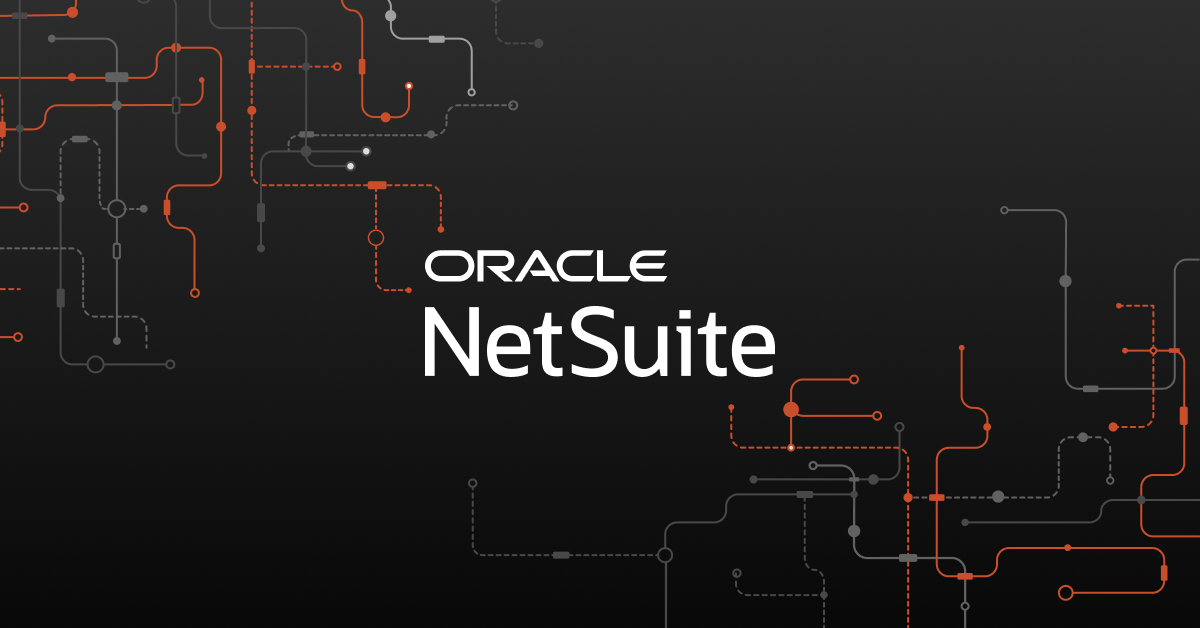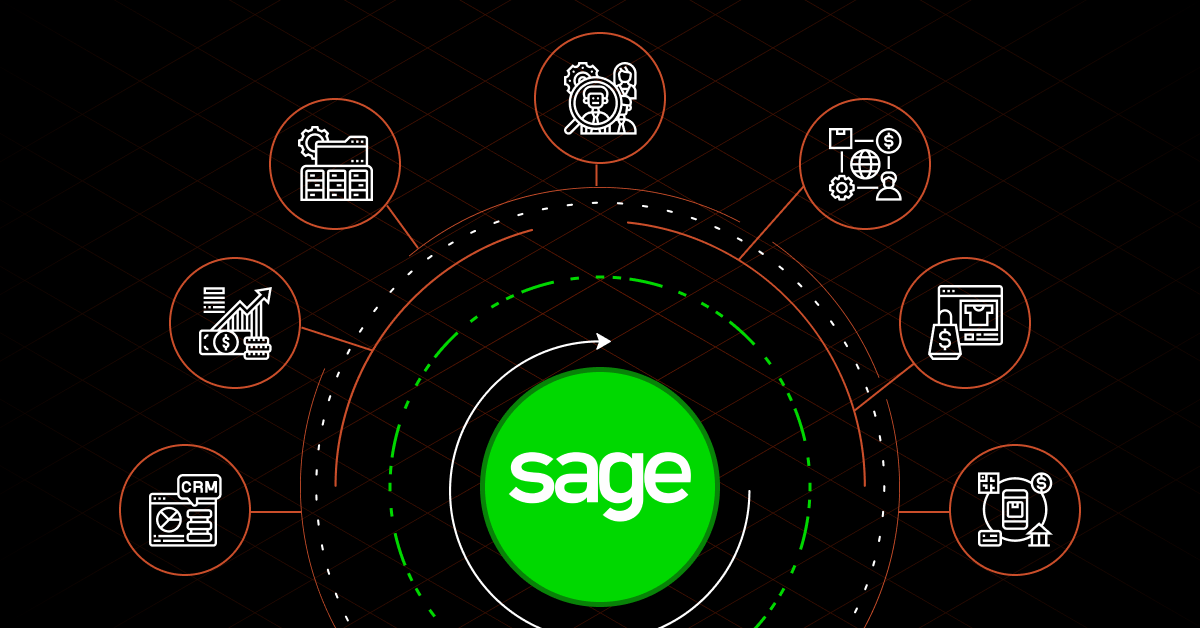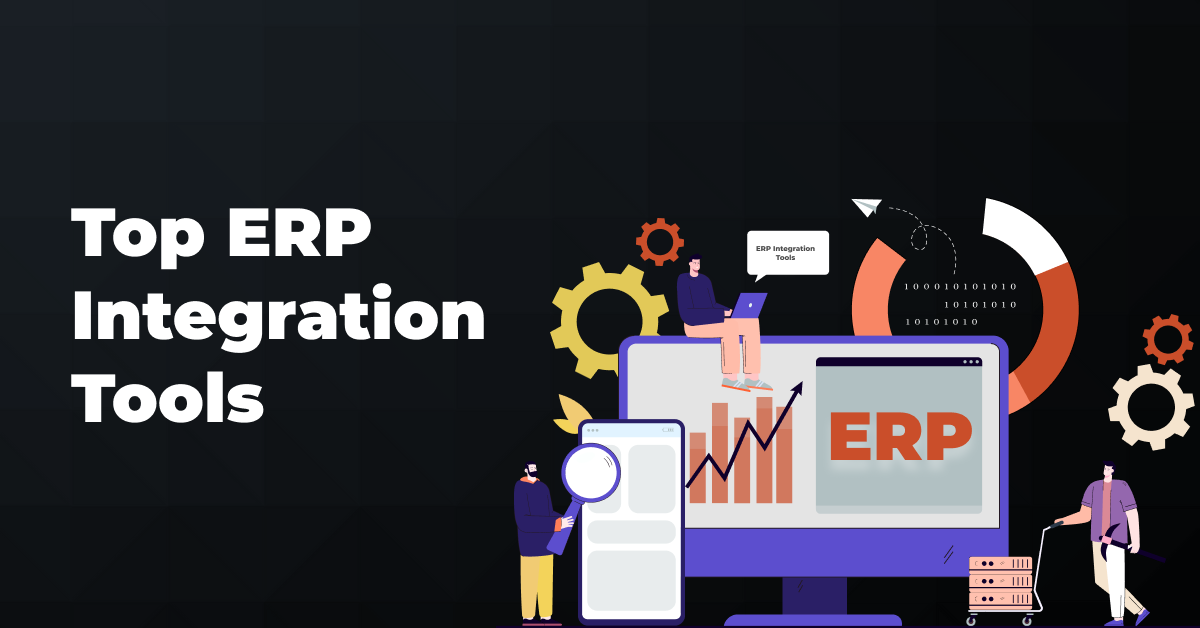A NetSuite connection allows data communication between your ERP system and other apps and platforms. Businesses can connect NetSuite to other systems like ecommerce platforms, third-party logistics providers, point-of-sale (POS) systems, and online marketplaces with the help of a NetSuite connector. Here, we’ll review some of the best tools and connectors for interacting with NetSuite.
Contents
Top NetSuite Connectors To Consider: At A Glance
| DCKAP Integrator | Celigo | Boomi | MuleSoft Anypoint Platform | SuiteSync | Scribe Online | |
| Features | Seamless sync, scalability, automation, monitoring, customization | Pre-built integrations, customizable workflows, cloud support | Drag-and-drop integration, data transformation, monitoring, error handling | API governance, common use case templates, continuous integration | Real-time sync, auto-generated orders,auto-invoices | Intuitive workflow design,large connection library |
| Pros | Third-party app integration, support, rapid deployment, security & compliance | User-friendly interface, large integration library, customizing options | Cloud and on-premise support, governance, scalability | Complete API management,security features, scalable architecture | Real-time sync, auto-generated documents, dedicated ecommerce | Large pre-built library, cloud and on-premise support |
| Cons | Complexity for advanced configs, dependency on vendor updates | Expensive for small businesses, tech skills for customization | Technical knowledge needed Expensive for small enterprises | Steep learning curve, meticulous planning needed | Limited to ecommerce, lack of advanced features, costly large deployments | Fewer customization options, large deployments can be costly |
| Pricing | Starts at $599/month | Starts at $3,000/year | Starts at $2,000/month | Contact sales | Contact sales | Starts at $279, contact sales for pricing |
1. DCKAP Integrator
The DCKAP Integrator’s superior features and intuitive design make it the go-to tool for NetSuite integration, particularly for distributors.
Top features:
- Seamless Data Synchronization
- Scalability
- Automated Processes
- Comprehensive Monitoring and Reporting
- Customization Options
Advantages:
- DCKAP Integrator integrates with several third-party apps, making it useful across varied business ecosystems.
- Users can create, monitor, and manage integrations without technical experience thanks to its intuitive interface.
- DCKAP provides documentation, training, and proactive client support to ensure seamless implementation and maintenance.
- The technology lets firms quickly deploy integration solutions to optimize procedures and improve data management.
- DCKAP Integrator follows industry standards and best practices to protect sensitive data and comply with regulations.
Disadvantages:
- The program supports users of all technical skill levels, however, sophisticated configurations may require additional support.
- Users may depend on DCKAP for updates and new features, which may limit integration solution flexibility and agility.
Pricing
DCKAP Integrator is transparent about its prices, which are tiered based on varying integration needs. These include:
- The standard plan costs $599 per month, payable annually, for small to mid-sized distributors with basic integration and automation needs.
- The professional plan costs $999 per month for major distributors with complex integration needs.
2. Celigo
Celigo is an iPaaS that integrates NetSuite with other apps. It simplifies company processes with pre-built integrations and configurable solutions.
Top features:
- Ready-made Salesforce, Shopify, and Amazon connectors.
- Easy customization using drag-and-drop.
- Data synchronization and scheduling automation.
- Data validation and error correction in real-time.
- Support for cloud and on-premise apps.
Pros:
- Friendly interface.
- Large, pre-built integration library.
- Custom workflows and maps.
- Robust support for complex data transformations.
- Monitor and handle errors automatically.
Cons:
- Pricing may be exorbitant for small businesses.
- Customizations may require technical skills.
Pricing
Celigo’s NetSuite integration solution costs $3,000 per year for Standard and $6,600 for Premium. A platform subscription fee applies.
Recommended reading: Easy Guide To NetSuite API Integration
3. Boomi
Dell Technologies’ Boomi is a cloud-based integration platform connects applications, data, and devices. Business operations and workflows are automated and optimized with NetSuite integration.
Top features:
- Integration design is done by drag-and-drop.
- Versatile deployment (cloud, on-premise, hybrid).
- Built-in data transformation and mapping.
- Logging and error handling automation.
- Live monitoring and alarms.
Pros:
- Visual interface for designing integrations.
- Cloud and on-premise support.
- Large-data-volume scalable architecture.
- Built-in governance and data quality.
- Large connection and API library.
Cons:
- Complex designs may require technical knowledge.
- Pricing might be expensive for small enterprises.
Pricing
Boomi has Base, Professional, Pro Plus, Enterprise, and Enterprise Plus. Annual contracts are required for all subscribers.
- Pro Plus support for real-time integration costs $2,000/month.
- $4,000/month* Enterprise Advanced features for sophisticated needs.
- $8,000/month* Enterprise Plus Advanced capabilities and connectivity for large enterprises.
4. MuleSoft Anypoint Platform
The MuleSoft Anypoint Platform is an API-driven integration platform that connects applications, data sources, and devices. It offers NetSuite connectors and solutions for enterprise-wide integration.
Top features:
- API governance and design tools.
- Common use case integration templates.
- Access and threat management by policy.
- Monitoring dashboard with real-time analytics.
- Integrate and provide continuously.
Pros:
- Complete API management.
- Supporting hybrid and multi-cloud scenarios.
- There are lots of pre-built connectors and templates.
- Advanced security with OAuth and SAML.
- Scalable architecture for complicated integration.
Cons:
- Beginners’ learning curve is steep.
- Needs meticulous planning to function well.
Pricing
MuleSoft’s annual subscription package offers gold, platinum, and titanium. Contact sales for pricing.
5. Stripe NetSuite Connector (SuiteSync)
Previously called SuiteSync, The Stripe NetSuite Connector is meant to integrate Shopify with NetSuite. It automates order management, inventory synchronization, and customer data transfer between systems.
Top features:
- Real-time order, inventory, and customer sync.
- Sales orders and invoices are created automatically in NetSuite.
- Custom field-syncing mappings.
- Troubleshooting error handling and logging.
- A scalable architecture for rising businesses.
Pros:
- Setup and settings are simplified.
- Inventory and orders sync in real-time.
- Auto-generated sales orders and invoices.
- Custom workflows and mappings.
- Dedicated ecommerce integration support.
Cons:
- eCcommerce integrations only.
- Complex workflows may lack advanced features.
Pricing
Contact sales for pricing.
5. Scribe Online
Scribe Online, a cloud-based integration platform, connects NetSuite to other apps, databases, and systems. Low-code integrations are possible with it.
Top features:
- Drag and drop is the method of integration design.
- Ready-made connectors for popular apps and databases.
- Monitoring and error management in real-time.
- Data transformation and validation automation.
- Access and security are based on roles.
Pros:
- The workflow design interface is intuitive.
- Large connection and template library.
- Cloud and on-premise support.
- Built-in mapping and transformation tools.
- Large-data scalable architecture.
Cons:
- There are fewer customizing options than comparable platforms.
- Large deployments cost more.
Pricing
Pricing depends on business integration needs. Pricing starts at $279. Contact sales for pricing.
Also see: The Top 30 Data Integration Platforms (Reviewed)
| An Alternative Option: Building from Scratch Creating a NetSuite integration from scratch requires extensive NetSuite APIs, SuiteScript, and XML knowledge. Developers build business-specific integrations. The advantages are full customization and versatility. Some of the drawbacks are that it is time-consuming and that development expertise is needed. |
Popular integrations using NetSuite Connectors
Magento Integration
Magento (now Adobe Commerce) and NetSuite integration streamlines order processing, inventory management, and financial reporting for ecommerce firms. It synchronizes online stores with back-office data for efficient operations and better decision-making.
Advantages:
- Improved order fulfillment, minimizing errors and time.
- Reduced stockouts and overstocks by improving inventory accuracy and visibility.
- Better decision-making with complete ecommerce performance data.
- Scalable solution for huge product catalogs and transactions.
- Enhanced client satisfaction through effective order handling and timely fulfillment.
Challenges:
- Highly customized Magento or NetSuite configurations may complicate integration.
- Setting up and configuring may require technical expertise.
- Third-party integration tool licensing and integration costs.
- Misconfigured mappings may cause data synchronization difficulties.
Amazon Integration
Automate order processing, inventory management, and financial reconciliation for Amazon sales channels using NetSuite. It accurately tracks sales, inventory, and customer data, improving efficiency and profitability.
Advantages:
- Improved order fulfillment, reducing manual labor and errors.
- Synchronized stock levels and product listings improve inventory management.
- Improved Amazon sales, profitability, and customer insights.
- Scalable for high order volumes and seasonality.
- Effective order processing and tracking improved client satisfaction.
Challenges:
- Highly customized Amazon or NetSuite configurations may complicate integration.
- Setting up and configuring may require technical expertise.
- Integration fees and third-party integration tool subscriptions.
- Misconfigured mappings may cause data synchronization difficulties.
Read more: 10 NetSuite Integrations + Top Methods For Distributors 2024
Salesforce Integration
Salesforce-NetSuite interface unites CRM and ERP platforms. The sales, marketing, and finance teams can synchronize data to see all client contacts and transactions.
Advantages:
- Streamlined processes boost productivity.
- Access to current departmental data improves client experience.
- Comprehensive data insights improve decision-making.
- Scalable solution for complex workflows and expanding data volumes.
- Better order accuracy and faster sales cycles.
Challenges:
- Setting up and configuring may require technical expertise.
- Highly customized Salesforce or NetSuite setups may complicate integration.
- Misconfigured mappings may cause data synchronization difficulties.
Shopify Integration
eCommerce enterprises may automate order administration, inventory synchronization, and financial reconciliation with Shopify and NetSuite Platform. Sales, inventory, and customer data are accurately tracked across both platforms, boosting operational efficiency and customer satisfaction.
Advantages:
- Simplified order fulfillment reduces manual labor and errors.
- Synchronized stock levels across platforms improve inventory management.
- Improved customer behavior and purchasing insights.
- Scalable solution for high transaction volumes and seasonality.
- More satisfied customers due to accurate order tracking and fast fulfillment.
Challenges:
- Technical specialists may help with setup.
- Integration fees and third-party integration tool subscriptions.
- High-customization Shopify or NetSuite compatibility concerns.
Conclusion
The right NetSuite Connector can help business maximize data and optimize crucial operations by connecting different systems and platforms.
DCKAP Integrator, Celigo, Boomi, MuleSoft Anypoint Platform, SuiteSync, and Scribe Online offer customizable integration features. DCKAP Integrator is the best NetSuite integration solution for distributors. Distributors can efficiently manage their operations with seamless data synchronization, robust customization, and scalability.
Reach out to us to know how DCKAP Integrator can help your integration needs, or check out our pricing plans to find the best match for you.




